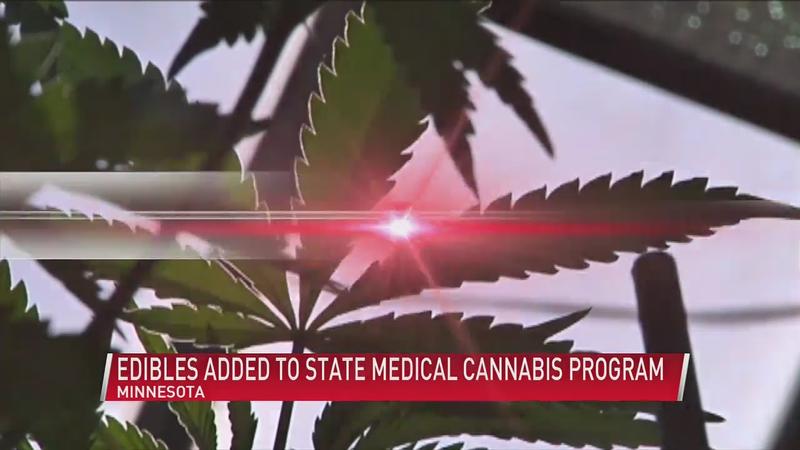Edibles added to state medical cannabis program
[anvplayer video=”5074818″ station=”998128″]
(ABC 6 News) – The Minnesota Department of Health announced that it will approve infused edibles in the form of gummies and chews as a new medical cannabis delivery method in the state’s medical cannabis program.
The new delivery method will become effective Aug. 1, 2022. A rulemaking process that will outline requirements for labeling, safety messaging, packaging, and testing will launch this month. Current permitted delivery forms include pills, vapor oil, liquids, topicals, powdered mixtures, and orally dissolvable products, like lozenges.
“Expanding delivery methods to gummies and chews will mean more options for patients who cannot tolerate current available forms of medical cannabis,” said Minnesota Commissioner of Health Jan Malcolm.
Coming in March 2022, registered medical cannabis patients will also be eligible for dried raw, smokable cannabis, which was approved by the 2021 Minnesota Legislature. Rulemaking for dried raw cannabis is also currently in process.
No new conditions were added this year. As in past years, MDH conducted a formal petition and comment process to solicit public input on potential qualifying medical conditions and delivery methods for medicine. Since 2016, petitioners have requested anxiety disorder or panic disorder as a qualifying medical condition. Each year it was denied due to lack of clinical evidence and the desire to avoid any unintended consequences. This year at the request of Commissioner Malcolm, the MDH Office of Medical Cannabis conducted an in-depth review, which included a research review of anxiety disorder as a qualifying medical condition. Ultimately the addition was not approved due to a lack of scientific evidence to support effectiveness as well as concerns expressed by health care practitioners.

“We received many comments from health care practitioners treating patients with anxiety disorder, and they urged us to not approve it as a qualifying medical condition,” said Commissioner Malcolm. “We recognize that not everyone has equal access to therapy – which is considered the front-line treatment – but ultimately we concluded that the risk of additional harms to patients outweighed perceived benefits.”
When the Minnesota Legislature authorized the creation of the state’s medical cannabis program, the law included nine conditions that qualified a patient to receive medical cannabis. Since then, the list of conditions has grown to 17. According to state rules, the commissioner of health each year considers whether to add conditions and delivery methods.